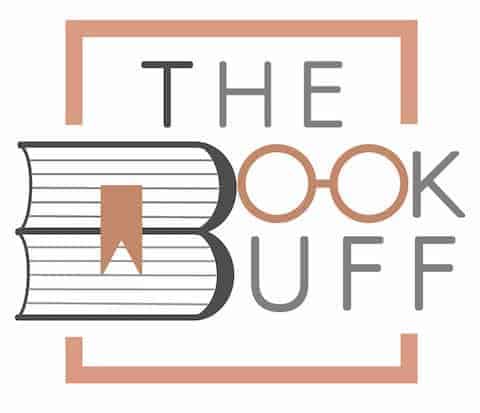Does Reading Improve Memory? [Here’s What We Found!]
Disclosure: This post may contain affiliate links. – meaning I may get a commission if you decide to purchase through my links, at no additional cost to you.
Would you like to be that charming person at the party who remembers every name? Perhaps you want to be the ideal partner who remembers not just the date of an anniversary but specific details about each significant date. Well, the key to it all is in a well-trained memory, and training your memory begins with reading.
Reading can improve your memory. It is a brain-stimulating activity that needs constant recall of words and meaning. It can improve short-term as well as your long-term memory as you take notes or discuss what you read. Research suggests that reading also slows down cognitive decline in old people.
In this article, you’ll discover everything you need to know about improving your memory through reading, including why your memory gets better, the difference between procedural and working memory, and how to stay motivated to improve your memory through reading.
Above all, you’ll find my favorite book for memory improvement. So bookmark this post, and read along!
Effects of Reading on Your Brain
Reading has a range of effects on the human brain. As we read, the neurons in our brain start firing engaging more than a few brain functions. Depending upon the emotions, memories, information processing, problem-solving, or other activities the brain undertakes, different parts of the brain get activated.
A research paper published in the Journal of Neurolinguistics shared its observations while conducting scans of a subject’s brain when he or she is asked to read. The research shares that there is heightened activity in the various parts of the brain when we read!
It further goes in-depth identifying and highlighting the various regions of the brain that get activated due to the stimulation from reading.
Related Article – How Does Reading Affect Your Brain? [With 7 Positive Effects!]
Since the brain is an information absorption and processing machine, the more it learns, the better it gets at problem-solving and other common functions. If a reader consumes useful information from non-fiction books, for example, he improves his capacity for taking on new challenges.
However, one doesn’t even need to consume technical non-fiction to improve their brain. The human brain is affected positively by reading almost any genre of content for a long period simply because language itself is a tool.
Consuming more words gives one’s brain the necessary practice to comprehend better. It also expands vocabulary, which directly affects one’s ability to understand and express.
Effects of Reading on Working Memory

Aside from changing one’s capacity for recognizing and expressing different emotions and experiences, reading can also positively alter a reader’s working memory. This is done by improving the reader’s focus.
Our focus is made up of two components: barrier for distraction and working memory.
If it takes a lot of distraction to get you off your target, you are said to have incredible focus. But that wouldn’t be the case if your working memory was weak. You’d need to pause and attempt to recall.
Lack of a good working memory can be a distraction. Fortunately, when one reads, certain details need to be recalled in real-time.
For example, if you’re reading a conversation between characters named Julie and John, you’ll need to remember each character throughout the dialogue.
As a habitual reader, you unintentionally exercise your real-time recall throughout character arcs, dialogues, and chapter switches. Because of this practice, your working memory improves significantly and without you even noticing!
Also, while your memory improves over time, reading also improves your focus!
Effects of Reading on Procedural Memory
Working memory and focus improvement seem like obvious results of reading more but what’s a surprising benefit is long-term recall.
While it is possible to be a reader who can’t recall what he read a month ago, most readers engage with texts they’re interested in.
Must Read – 21 Benefits of Reading Regularly [Here’s Why We Should All Read!]
Remember, unlike short-term recall, procedural memory needs to be deliberately exercised as a reader. Only readers who reflect, join book-specific dialogues, or talk about what they consume are able to get the complete benefit of long-term memory improvement from reading.
Still, it does count as a reading benefit mainly because reading is at the core of recall practice even though it requires reflection.
What Kind of Books Should You Read to Improve Memory

Now that you know that reading can improve both short-term and long-term memory let’s look at how you can ensure that you improve your memory as much as possible by selecting the right kind of books.
To improve your memory, you should read books with large sets of active characters. By having to recall names and details across the book’s story, you’ll unconsciously start practicing short-term recall. After each chapter, writing a short summary will help improve long-term recall as well.
Remember that writing a summary of each chapter is an option, but the more you contribute to actively processing the story, the more you’ll improve your long-term recall and expression as elements of the story will become ingrained in your memory via active expression.
At this point, you might be wondering if reading is worth it for the potential gift of improved memory. It might seem like the projected improvement is a long shot, mainly because you don’t know how long it will take for your memory to improve.
How Quickly does Reading Improve Your Memory?
Your memory can start improving as early as one month into consistent reading. The improvement is also exponential because the better you get at recall, the more you can practice recall. The better you get at reading, the more you start enjoying the process.
That said, the amount of time reading takes to improve your memory can also vary based on your objective.
If your goal is to improve a specific type of memory such as memorizing the words and meaning, then perhaps you may see an improvement in your memory within a few days as you will focus only on a specific activity that triggers limited parts of your brain.
However, if you engage in casual reading hoping for improvement in memory and recall, it can take longer as it will involve activating multiple other sections of the brain. Reading, as opposed to memorizing words and their meaning, will be better for the overall development of the brain.
But of course, that doesn’t mean you can read just one sentence a day for a month and expect your memory to improve.
How Much Should You Read to Improve Memory?
Generally speaking, you’ll need to read at least two chapters every day and increase this number as your reading speed improves. A good rule of thumb is to dedicate one hour to focused, distraction-free reading and read as much as you can comfortably read without compromising comprehension.
You’ll notice that the number of pages you read in week two will be higher than page one. This is, partially, because as you get further invested in the story, you read with more focus. But another part is due to organic improvement in reading speed.
Related Read – check out our other article that tells you exactly how many hours should you read in a day!
Yet another factor that will improve your reading speed is that you won’t have to pause to recall certain details. Ultimately, your words per minute will increase, but your reading time should never go down.
Taking Notes to Improve Memory

Taking notes helps your memory, but that shouldn’t take priority to read. And if you take notes, you should not count them as a part of your reading time.
Taking notes ingrains ideas more deeply into your memory and is an extension of reading. After an hour of reading, if you take the time to reflect on what you’ve read, you’ll do your long-term memory a huge favor.
Interpretative reflection is a useful enough activity to require an hour by itself. If you’re satisfied with how reading has improved your short-term recall and want to improve your long-term memory, reading books that feature a lot of details and statistics, then spending one hour trying to recall the details can help.
You can also gamify the experience by rewarding yourself for every detail you get right. I’ve written more about using positive psychology and human cognitive biases to make yourself a better reader in a post dedicated to reading more effectively.
Is Improving Your Memory Worth It?
Now that you know how reading helps your memory and even specific tactics, including book selection that you can use to improve your memory, the question of memory’s utility arises. With the advent of Google, the role of memory and notes is brought into question.
Research published in Nature Communications shows that human brains are altered because of the loss of use of certain aspects. The research shows how cab drivers, who use electronic maps for navigation, have a significantly decreased activity in the area of the brain associated with navigations.
So the reasonable conclusion is that because Google has made it so easy to pull up information, we need to work diligently to preserve our working memory and actively protect ourselves from losing the capacity to recall things.
Yes, we might not need to lean on our recall capacity as much as people before the digital revolution but losing something as universally useful as one’s recall capacity is too risky.
You’ll need to be externally motivated for about a month, after which you’ll start enjoying your new reading habit so much that questions about the worthiness of its effects will no longer be on your mind.
Note – If you are having trouble getting started with reading or if you want your dear friend or loved one to start reading, make sure you check out our guide on how to get interested in reading
Having an accountability partner during the first month of adopting a reading practice helps.
Your partner will be able to have tough conversations with you when you start rationalizing getting away from reading because “who needs improved memory” anyway? Starting with your “why” is key to commitment.
So make sure you’ve written down what you want from having a better memory. Do you want to ace your exams?
Do you want to become an actor who can recall pages upon pages of dialogue without frustrating the director?
Knowing exactly why you want to build a strong memory is the key to staying motivated as you’re getting more accustomed to your new reading habit. The more reading becomes natural to you, the less external motivation you’ll need to be a good reader.
The Best Book to Improve Your Memory
Reading, in general, improves your memory, but the best way to remember two birds with one book is to read a book that teaches you specific techniques to enhance your memory.
Limitless: Upgrade Your Brain, Learn Anything Faster, and Unlock Your Exceptional Life is my favorite one on the subject. It is a book written by Kwik, who is a critically acclaimed celebrity brain coach.
In it, you’ll learn how to improve your memory alongside your capacity to learn quickly. There’s a reason why it has over 11,000 reviews and ratings that collectively come to an average of 4.7 out of 5 stars.

About the Author
Akansha is a former business journalist and a seasoned communications professional. She is the founder of TheBookBuff, an avid storyteller, and a lifelong biblophile! Check out her profile page to know more about Akansha.


![How to Register a Kindle Device? [The Complete Guide!]](https://thebookbuff.com/wp-content/uploads/2021/11/pexels-alisson-lucena-9268223-optimized-300x200.jpeg)
![Kindle Paperwhite vs Oasis: Which is Better? [Full Guide!]](https://thebookbuff.com/wp-content/uploads/2023/08/Kindle-Paperwhite-vs-Oasis-300x201.jpg)
![Why is Reading a Good Hobby? [11 Reasons Explained!]](https://thebookbuff.com/wp-content/uploads/2021/12/Depositphotos_89037856_XL-300x200.webp)
![How Long Does a Kindle Last? [A User’s Experience!]](https://thebookbuff.com/wp-content/uploads/2022/06/Kindle-300x200.webp)
![Can Kindle Battery be Replaced? – Here’s How! [Full Guide]](https://thebookbuff.com/wp-content/uploads/2022/04/pexels-dan-cristian-pădureț-1476321-300x200.webp)
![Kindle vs. iPad: Which is Better for Reading in 2023? [Guide!]](https://thebookbuff.com/wp-content/uploads/2022/08/reading-on-iPad-300x223.webp)